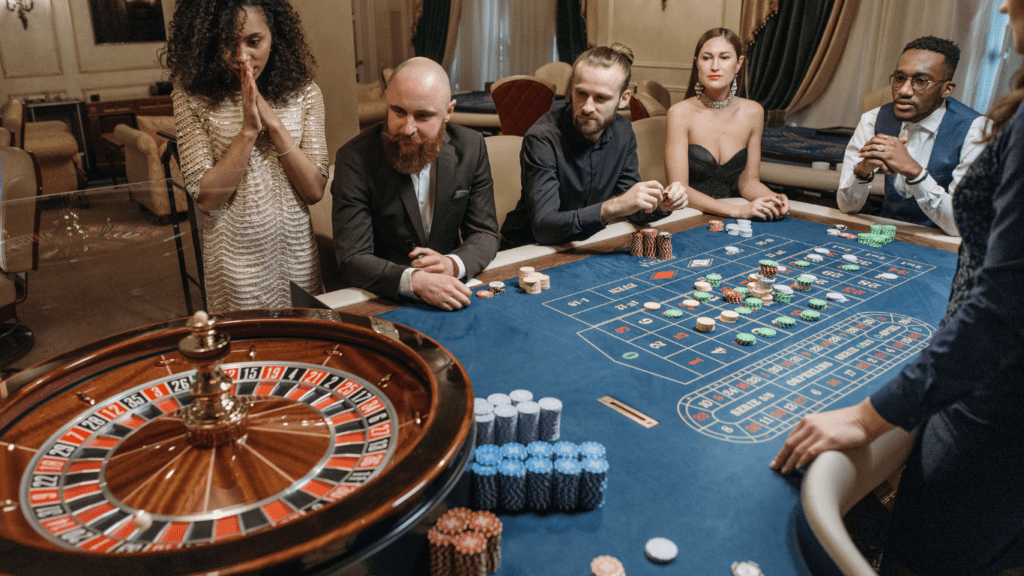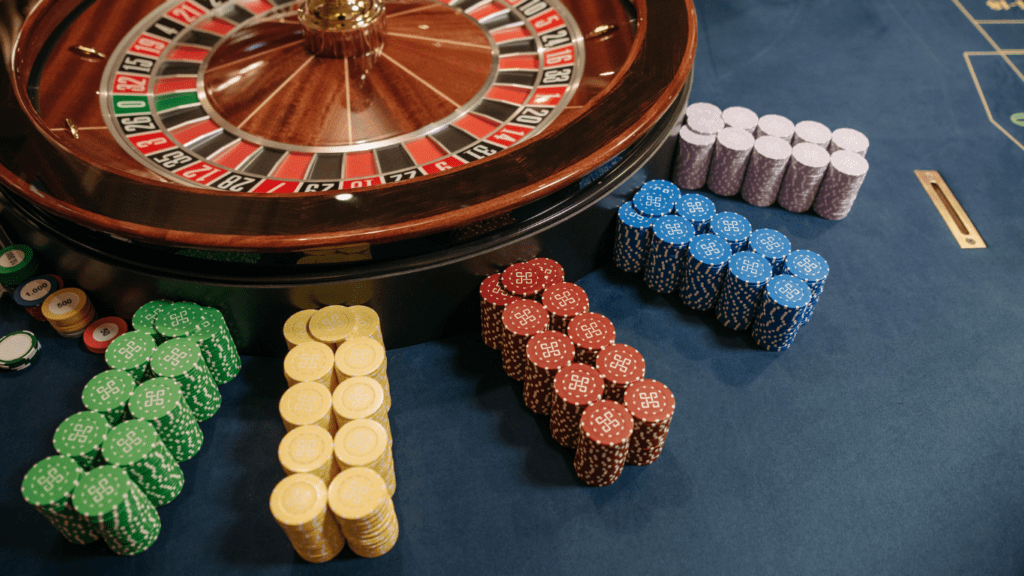Understanding The Basics Of Roulette
Roulette captivates players with its dynamic spinning wheel and the anticipation of where the ball will land. This game, while appearing straightforward, rests in the realm of chance rather than skill.
The Role Of Chance In Roulette
- In roulette, chance reigns supreme.
- The wheel features either 37 or 38 numbered pockets, depending on the version played
- Each spin represents an independent event, unaffected by previous outcomes.
- I often observe the random nature of each result, which demonstrates why predicting the next number is practically impossible.
- The house edge, roughly 5.26% in American roulette and 2.7% in European roulette, ensures that over time, the house benefits more than the player.
Common Misconceptions
Misconceptions abound regarding strategy in roulette. Some players believe in the ‘gambler’s fallacy’, thinking previous outcomes affect future spins. For example, a series of red results may lead some to expect black next. I’ve encountered others who trust patterns or rely on ‘hot’ and ‘cold’ numbers, assuming certain numbers will win more frequently. These beliefs persist despite the mathematical reality that each spin is a new event, bound only by probability and the wheel’s design.
Popular Roulette Strategies

Roulette enthusiasts often adopt various strategies, hoping to enhance their chances against the house. Here, I explore a few well-known approaches and why they’re often more myth than reality.
The Martingale System
The Martingale System remains widely popular due to its straightforward nature. Players double their bets after every loss to recover previous losses. While this strategy seems logical, it doesn’t account for table limits, which can prevent full recovery if losses accumulate. Additionally, an extended losing streak can require substantial funds, increasing the risk.
The Labouchere System
The Labouchere System prides itself on flexibility. Players choose a sequence of numbers that represent betting units and aim to cross off numbers through wins. They add the first and last numbers to dictate each bet size. Success closes the series, but an unlucky streak can elongate the sequence, demanding larger bets and greater risk, challenging its promised structure.
The D’Alembert System
The D’Alembert System simplifies progression. By increasing a single unit after a loss and decreasing one unit after a win, players aim for balance. Its appeal lies in its incremental change, yet it trusts that wins and losses will eventually balance out. However, no guarantee exists for this equilibrium within a given session, rendering it as unpredictable as the others.
Debunking The Myth Of Guaranteed Strategies
Many roulette enthusiasts chase the elusive idea of guaranteed strategies for winning. My research reveals that these strategies, however sophisticated they appear, can’t overcome the inherent statistical advantages favoring the casino.
The House Edge Explained
- The house edge essentially functions as the casino’s advantage over players.
- In American roulette, this edge stands at about 5.26%, while in European roulette, it’s approximately 2.7%.
- This means, on average, casinos keep this percentage of all money wagered.
- Understanding the house edge clarifies why even the most promising strategy struggles for consistent success.
- Although strategies modify how bets are placed, they don’t affect the predetermined mathematics ensuring the casino’s profitability over time.
Probability Vs. Certainty
Probability governs each spin of the roulette wheel, distinguishing it from certainty. When a player bets on a number, there’s a fixed probability tied to the chance of winning, and it isn’t influenced by previous spins. For example, betting on a single number in a European setup has a 1 in 37 chance of success. Enthusiasts might misinterpret patterns or recent outcomes as indicators of future results, but each spin remains isolated, dictated solely by statistical probability. Clarifying this distinction helps dismantle the myth of certainty in roulette strategies.



 Founder of Key Gamble Lucky, Erniest Adkinseler is dedicated to providing in-depth gambling news, debunking common myths, exploring the dynamics between luck and skill-based games, analyzing the psychology of luck, and offering the latest legal updates in the gambling industry. With a deep passion for unraveling the complexities of gambling, Erniest strives to create a platform that educates and empowers players. Through insightful analysis and expert commentary, Erniest aims to equip readers with the knowledge and confidence they need to make informed decisions and navigate the world of gambling more responsibly.
Founder of Key Gamble Lucky, Erniest Adkinseler is dedicated to providing in-depth gambling news, debunking common myths, exploring the dynamics between luck and skill-based games, analyzing the psychology of luck, and offering the latest legal updates in the gambling industry. With a deep passion for unraveling the complexities of gambling, Erniest strives to create a platform that educates and empowers players. Through insightful analysis and expert commentary, Erniest aims to equip readers with the knowledge and confidence they need to make informed decisions and navigate the world of gambling more responsibly.